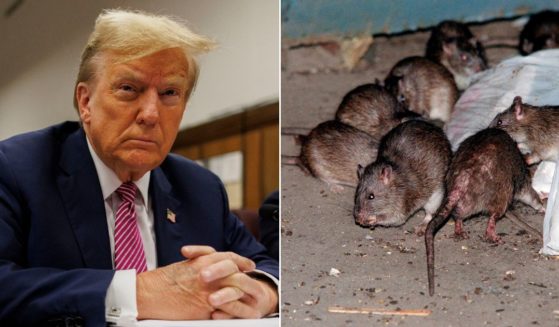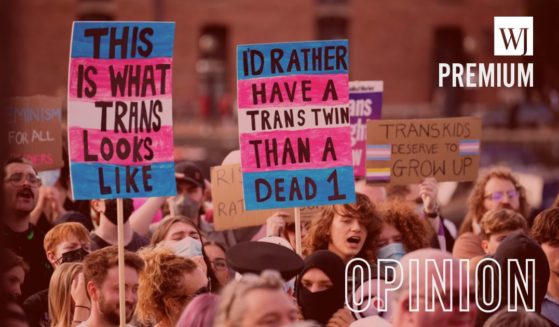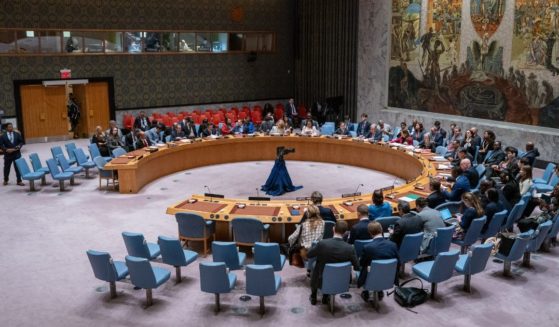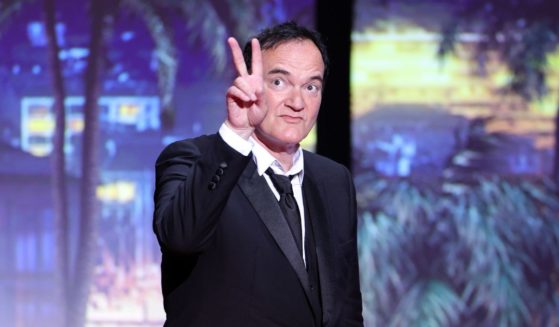Watters Notices Oddity After Biden's '60 Minutes' Interview, Drops the Big One: Is Biden Really President?
On Sunday, CBS News aired an interview with the man who is, at least on the White House letterhead, the president of the United States.
Anchor Scott Pelley asked the president, the man who is supposed to be directing America’s foreign policy response, whether the United States would defend Taiwan if China attacked. The president said yes, we would.
The White House would later make a huge clarification: Sure, that’s the kind of decision presidents make, but that’s not the decision the White House has reached.
Given the oddity of the situation, Fox News’ Jesse Watters wondered, is Joe Biden actually the president in anything but name?
Just so we’re clear, the kerfuffle stems from a question from Pelley to Biden about whether his administration still follows the “One China” policy, which recognizes the People’s Republic of China as the “sole legal Government of China” but allows for strong ties with Taiwan.
“We agree with what we signed onto a long time ago,” Biden said.
“And that there’s a ‘One China Policy’, and Taiwan makes their own judgments about their independence. We are not moving, we’re not encouraging their being independent … that’s their decision.”
“But would U.S. forces defend the island?” Pelley then asked.
“Yes, if, in fact, there was an unprecedented attack,” Biden said.
As it turns out, that’s not American policy — something the White House made clear posthaste.
“After our interview, a White House official told us U.S. policy has not changed,” Pelley said in a voice-over. “Officially, the U.S. will not say whether American forces would defend Taiwan. But the commander in chief had a view of his own.”
“So, unlike Ukraine, to be clear, U.S. forces, U.S. men and women, would defend Taiwan in the event of a Chinese invasion?” Pelley asked.
“Yes,” Biden replied.
President Biden tells 60 Minutes that U.S. men and women would defend Taiwan in the event of a Chinese invasion. However, after our interview, a White House official told us that U.S. policy on Taiwan has not changed. https://t.co/ANg54LifSH pic.twitter.com/V5qjoqF36T
— 60 Minutes (@60Minutes) September 19, 2022
That answer flies in the face of longstanding U.S. position on Taiwan known as “strategic ambiguity.” To make it ridiculously simple, it means we may defend Taiwan, or we may not — so roll the dice and take your chances, China, but things might not end so well for you.
Biden’s remarks were neither strategic nor ambiguous. But he’s supposed to be the guy calling the shots, right? Well, as Watters pointed out on “Jesse Watters Primetime” on Monday, that remains up for debate.
“Is it me or do you guys get the feeling that Joe Biden is not really the president?” Watters asked.
“Who is this unnamed ‘U.S. official?’ Is he the president? Joe Biden is the commander in chief. He’s supposed to set foreign policy, but when he goes out there and sets it, there’s someone else behind the curtain saying, ‘No, no, no, no, no, no. That’s not really what our policy is.’ What?”
Watters isn’t just being flippant here, and this isn’t the first time something like this has happened. In fact, it’s not the first time something like this has happened in regard to the exact same issue.
In May, Biden told a reporter that the United States was “willing to get involved militarily to defend Taiwan” and that this was “the commitment we made.”
After that, however, Bloomberg reported that a spokeswoman from the White House repeated a remark Biden had made earlier in the news conference that America’s policy toward Taiwan “has not changed at all” and “saying the president reiterated the US’s ‘One China Policy’ and its commitment under the Taiwan Relations Act to provide Taiwan with the military means to defend itself.”
And then there was the time someone in the White House had to walk us back from the brink of World War III due to this gem:
“For God’s sake, this man cannot remain in power,” Biden says of Vladimir Putin. pic.twitter.com/9QY9QidUZS
— Greg Price (@greg_price11) March 26, 2022
Despite the fact Joe Biden was explicitly calling for regime change in Russia during that March speech in Poland, the White House assured everyone that the White House wasn’t calling for regime change in Russia.
“The president’s point was that Putin cannot be allowed to exercise power over his neighbors or the region,” a White House official said at the time. “He was not discussing Putin’s power in Russia, or regime change.”
Except that he was. These are decisions that presidents are supposed to make. We all heard Joe Biden make them. We then heard “the White House” insist that, no, that wasn’t the decision that had been made at the executive level.
Watters raises a serious point: Joe Biden’s name may be on the White House letterhead, but sometimes it feels like that’s about it.
“The commander in chief had a view of his own,” Pelley said. But that doesn’t appear to be the “view” of the White House Biden is supposed to be leading.
I’m not sure whether that should comfort or frighten you, but there you have it.
Truth and Accuracy
We are committed to truth and accuracy in all of our journalism. Read our editorial standards.












